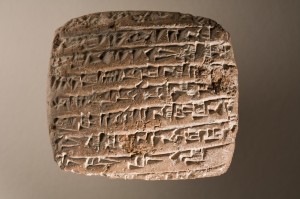As it is with people, history is complicated and nuanced. Rarely, if ever is history clean-cut or black-and-white, with one side or individual being the sole party at fault. Unfortunately, over the centuries and generations the retellings of history have been at times altered, exaggerated, or even ignored, sometimes for the sake of simplification or to push an agenda. In this entry of Writing Tips, Xlibris Publishing discusses Historical Revisionism. Whether writing fiction or non-fiction, it is vital that authors be aware of historical revisionism, what it is, and when to either embrace or avoid it.
What is Good Historical Revisionism?
At its most basic, historical revisionism is a historiography (having to do with recording history) term meaning changes, adjustments, or re-interpretations of the historical record due to new evidence and understandings of the subject history. Perhaps an ancient text has been re-translated in a more nuanced and comprehensive manner, adding a whole new dimension to the events inscribed. Perhaps new science has revealed the true gender of the remains of an acclaimed Viking warrior, shedding light as to a long-gone society’s views and practices on gender? New, valid evidence requires a re-examination of the history under the light of new knowledge and understanding.
Sometimes, due to lack of evidence to the contrary, historians might try to explore new and alternative explanations for historical events, acts, and decisions. While there is nothing wrong in this form of historical writing, authors must clearly acknowledge what evidence does or does not exist, and acknowledge the limitations and weaknesses of their theory.
What is Bad Historical Revisionism?
Unfortunately, history is written by people and thus prone to whichever biases or even agendas drive such people. Sometimes historical revisionism is done, not for the sake of historical fidelity or truth, but to serve a specific means, to impart a message that goes against what actually happened or simply tries to apply meaning where it is impossible to know for sure.
The most egregious case in modern years have been attempts by some to deny the Holocaust- when the Nazi regime systematically murdered 6 million Jews and others deemed ‘undesirable’ by the Nazis- happened. This is despite mountains of evidence, including personal accounts from prisoners, Nazis, and Allied soldiers, as well as material and documentary evidence.
Conclusion
Ultimately, historical revisionism has served both positive and negative purposes. Proper historical revisionism is needed to maintain academic integrity when new information and evidence comes to light. But history is written by people, and thus susceptible to their biases, emotions, and motives. History can and has at times been revised to serve purposes contrary to the truth, whether by being ignored, de-emphasized, rewritten, or even outright denied.
Xlibris Publishing trusts this helps
Please make sure to check out the Xlibris Publishing site for more advice and blogs, and be sure to follow us on Xlibris Publishing Facebook and Xlibris Publishing Twitter. Get your free publishing guide here.
By Ian Smith


